Before the professor dove into the first lecture of our undergraduate Existential Philosophy class, he shared some ground rules. There was to be no mocking of beliefs during our discussions. No interrupting (this was pre-smartphone, so attention deficit was not yet epidemic). Above all, he said, being curious counted more than being correct.
I recalled that last advisory recently, after stumbling onto Jeroen van Veen’s 2017 recording of the piano music of Friedrich Nietzsche. Here was a slightly lesser-known wrinkle in the provocative philosopher’s biography: Small, often fragmentary works composed during a period in his teens and early adult life. This would have been before Nietzsche delivered such towering thought-bombs as Thus Spoke Zarathustra and Beyond Good and Evil, before his famous dustup with Wagner and rejection of Romanticism.
So, early days. Around the time when Nietzsche’s ideas about the meaning and value of individual human endeavor – as distinct from collective action or cultural indoctrination – were coalescing. It seemed important to check out the great man’s music, on the chance that it might be as rich as his perceptive, sometimes heroic prose. Brief example, from the collection of epigrams in Beyond Good and Evil: “Whoever fights monsters should see to it that in the process he does not become a monster. And when you look long into an abyss, the abyss also looks into you.”
Of course Nietzsche is also credited with this enduring quote: “Without music, life would be a mistake.”
The Wiki entry on Nietzsche describes him as an “amateur composer,” and there’s little to refute that estimation on van Veen’s Piano Music collection. The pieces are mostly somber. They suggest a mood of private deliberation – they’re slight, somewhat boilerplate melodies that amble along at a slow crawl, only occasionally growing poignant through repetition. Almost ambient, but not quite. There’s a “Mazurka” that is essentially just a 90-second diatonic scale study, several pieces built on hymnlike block chords, and a few pleasant moody reveries that drift in and out of tempo.
The most evocative of those is called “Albumblatt,” and as I listened in a kind of vague way, I wondered about the background music of Nietzsche’s time, the precursors to Brian Eno and the electronic masters of static and soothing sound atmospheres. We know he respect Richard Wagner and then disavowed him in the 1889 essay Nietzsche Contra Wagner; did the philosopher soak up any influence from composers outside of the Romantic canon? It’s impossible to tell from the selections available.
It could be that Nietzsche’s interpreter van Veen is steering the pieces toward still water, on the thinking that slow and stately might convey profundity. I’d never heard the Dutch pianist until the Nietzsche record, and from there discovered his austere, crystalline, carefully measured interpretations of works by Phillip Glass, Astor Piazzolla, Simeon ten Holt (the remarkable Canto Ostinato), and Ryuichi Sakamoto (the restive soundtrack to Merry Christmas Mr. Lawrence, which van Veen interprets for solo piano). Selections from a few of these follow Nietzsche on the playlist.
I’d already been thinking about Sakamoto after the January 11 death of drummer and singer Yukihiro Takahashi, his bandmate in the legendary electronic-pop band Yellow Magic Orchestra. (Discussed in an early Echo Locator here.) Sakamoto has battled various cancers since 2014; he’s continued to compose and record and, no small feat, endure interviews, including an extensive one for the 2017 documentary Ryuichi Sakamoto: Coda.
His just-issued new album, 12, is presented as a diary, in chronological order. The song titles are dates (track one is “20210310”); its not clear if Sakamoto did any subsequent fixing or post-production. The vibe is spa music at a very high level – the pieces open with hovering drapes of synthesizer textures, which are sometimes offset by declarative piano melodies. Everything is austere, each new instrument serves to augment the aura of stillness and contemplation. Sakamoto told an interviewer that after a particularly difficult surgery, he gravitated toward the synthesizer. Not to compose: “I just wanted to be showered in sound.”
That’s a teensy illustration of curiosity in action: I simply had to press play on the music of Nietzsche, regardless of what it sounded like. That led to Jeroen van Veen’s interesting discography, which led to yet another record by Ryuichi Sakamoto that will stay with me for a long time.
Yes, we have a fancy digital suggestion box. Share your favorite Underloved/Overlooked records here: echolocatormusic@gmail.com.
Please consider subscribing (it’s still free!). And…..please spread the word! (This only works via word of mouth!)



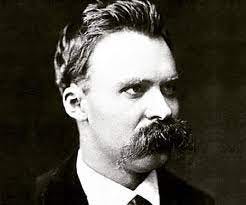
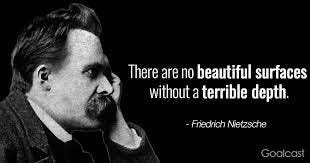
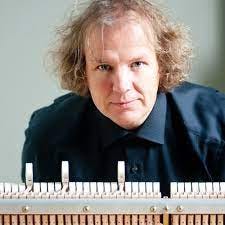
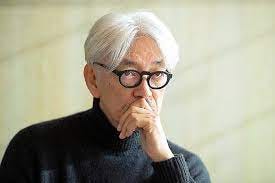
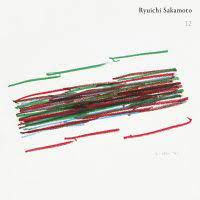

Fascinating - I had no idea Nietzsche had composed anything! Thanks!